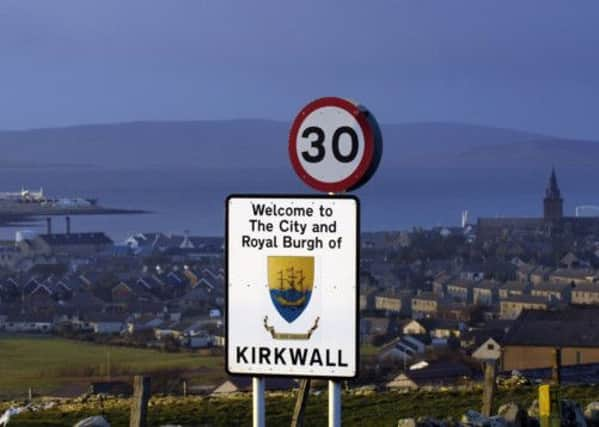Orkney best for Scottish job hunters


There was a sharp increase in the gap between the top three parts of Scotland for employment prospects and the worst three, the Scottish Government admitted in the report.
In Orkney 81.3 per cent of the population was in work in 2012, an improvement of two per cent on the previous year.
Advertisement
Hide AdAdvertisement
Hide AdHowever, there were gloomy job prospects in Scotland’s biggest city Glasgow with an employment rate of just 59.7 per cent in 2012, a fall on the figure of 63.8 per cent for the previous year.
There was also a bleak picture in North Ayrshire, which has an employment rate of 61.7 per cent, similar to its figure of 61 per cent the previous year.
The city of Dundee saw its employment picture worsen over the last year, with its jobs rates falling from 68.4 per cent to 65.2 per cent.
Employment rates in the three best performing parts of Scotland in Orkney, Aberdeenshire and Shetland all stood at about 80 per cent, while the three worst areas had less than two thirds in work.
The overall gap in employment rates between the top three and bottom three local authorities increased by 2.8 percentage points between 2011 and 2012, the report said.
Holyrood’s economy committee convenor Murdo Fraser warned that the picture of two nations, with stark differences in employment rates in Scotland should be a key concern for Alex Salmond.
He said: “Alex Salmond is quick to claim credit whenever there’s positive statistics for Scotland.
“However, he should be concerned that these latest figures show a widening gap between the better performing and poor performing areas.”
Advertisement
Hide AdAdvertisement
Hide AdThe Scottish Government blamed the worsening unemployment rates in parts of Scotland on Westminster and claimed that the UK was one of the “most unequal societies in the developed world”.
There was an increase in employment rates in Edinburgh, with the percentage in work rising from 71.8 per cent to 72.8 per cent between 2011 and 2012.
Oil rich Aberdeen also saw its jobless figure improve, with the employment rate in the Granite City increasing from 75.9 per cent to 76.9 per cent during the same period.
However, the percentage of those in work in Inverclyde fell from 67.3 per cent to 65,3 per cent between 2011 and 2012.
There were similar rates of those out of work in areas such as Clackmannanshire and East Ayrshire in 2012, which had figures of 65.5 per cent and 66.9 per cent respectively last year.
Labour finance spokesman Iain Gray said the findings showed “inequality is becoming more engrained in our communities” as he accused the SNP of promoting independence at the expense of helping unemployed.
He said: “These figures show a government with the wrong priorities. Instead of focussing entirely on next year’s referendum, the SNP should instead be getting on with the day job. Behind all the rhetoric and the spin, these figures show that under the SNP, Scotland is becoming a more divided and unequal society.”
Scottish Liberal Democrat leader Willie Rennie insisted called on Scottish ministers to cooperate with the Westminster Government on job creation schemes.
Advertisement
Hide AdAdvertisement
Hide AdHe said: “This demonstrates that the gap in employment rates between the top three and bottom three local authorities will require both of Scotland’s governments working hand in hand to create job-boosting environments across Scotland on initiatives.”
A Scottish Government spokesman insisted that independence would lead to a “fairer, more equal country”.
The spokesman said: “The UK is one of the most unequal societies in the developed world, and that inequality has been allowed to widen under successive UK Governments. An independent Scotland, with full responsibility for economic and welfare policy, will be able to create a fairer, more equal country.
“We are doing all we can, with the powers we currently have, to address the deep social inequalities which exist in our society. The UK Government’s cuts to capital budgets and welfare cuts add to the pressures that we face in addressing inequality.”